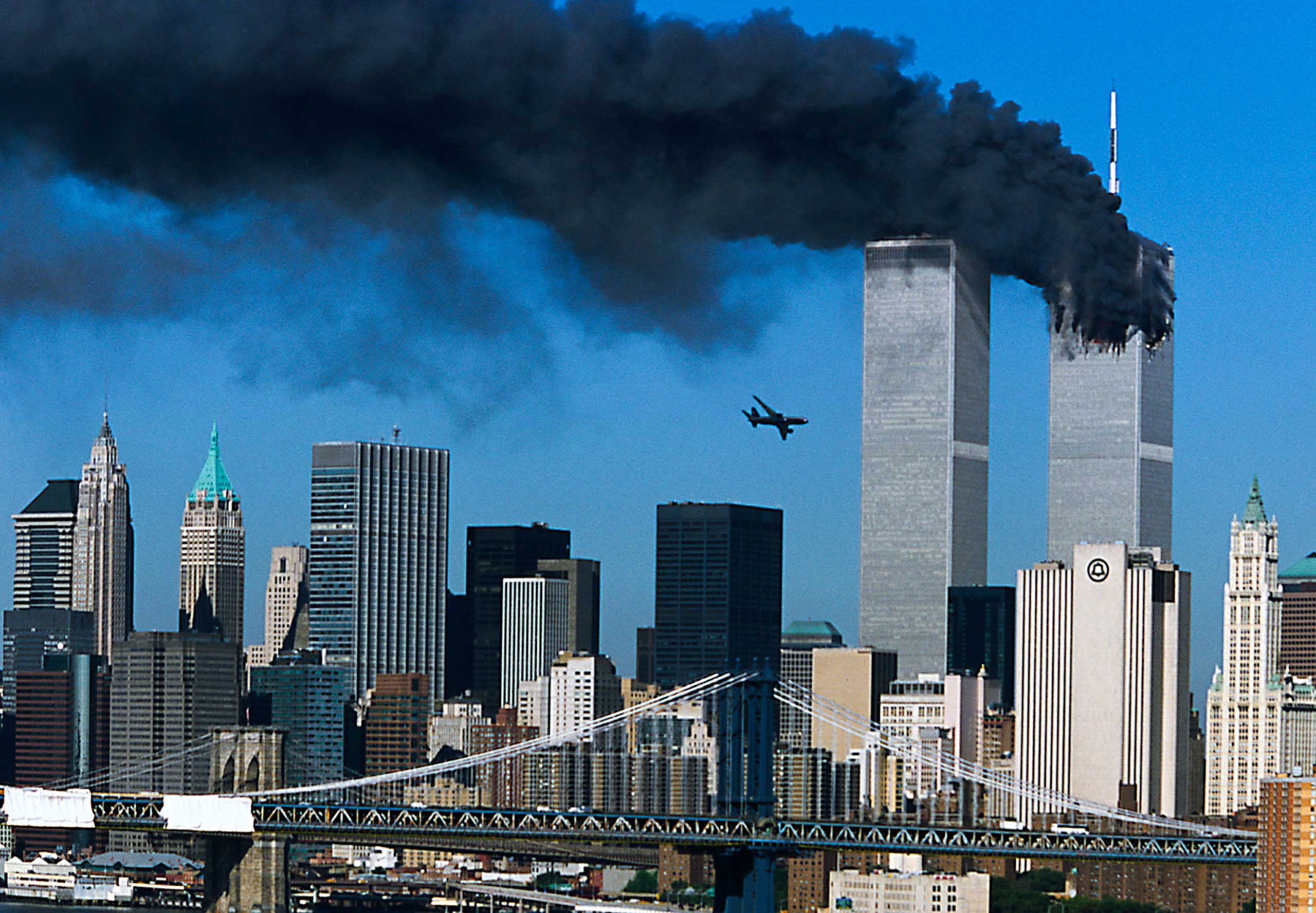Twenty years after the worst terrorist attack on American soil in history, there is still a lot we don't know about the months leading up to that painful day. One of the outstanding questions is whether the Saudi government, or at the very least officials within the Saudi government, supported, financed, or enabled the terrorist attacks in New York, Washington, D.C. and Shanksville, Pa. in any way. Since 2002, families of the 9/11 victims have devoted their lives to finding answers. Riyadh has been the target of numerous lawsuits in an attempt to force more information into the public domain.
As far as we know, the Saudi government as a whole didn't aid the 9/11 hijackers. The 9/11 Commission examined the issue and concluded that while Al-Qaeda often tapped wealthy Saudis for donations, they "found no evidence that the Saudi government as an institution or senior Saudi officials individually funded the organization." The Saudi royal family, after all, kicked Osama bin Laden out of the kingdom in the early 1990s and froze his assets. Riyadh also reached out to the Taliban after the 1998 U.S. embassy bombings in Africa, hoping it could convince the movement to extricate Osama bin Laden from Afghanistan.
Yet it's indisputable that some Saudis had connections with some Al-Qaeda terrorists who turned four commercial airliners into fully-fueled missiles. Omar al-Bayoumi, whom FBI agents believed was a Saudi intelligence agent, assisted Khalid al-Mihdhar and Nawaf al-Hazmi with finding an apartment when the two hijackers settled in San Diego a year before the attacks. Mohamed Atta, Ziad Jarrah and Marwan al-Shehhi, three more 9/11 hijackers, were frequent visitors to the Florida home of Abdulaziz and Anoud al-Hiji, the son-in-law and daughter of a former consultant to the Saudi royal family. According to the joint congressional inquiry looking into 9/11, the wife of Osama Bassnan, another Saudi national and a close associate of al-Bayoumi, received funds from the wife of Saudi Prince Bandar bin Sultan, the Saudi ambassador to the U.S. at the time. And when Al-Qaeda associate Abu Zubaydah was captured in Pakistan, discovered in his possession was a book of phone numbers, one of which was an unlisted company managed by Prince Bandar's estate.
The Saudi government dismissed these findings as a series of coincidences. However, the fact that some Saudi citizens were running in the same circles as the 9/11 perpetrators—and that 15 of the 19 hijackers were Saudi nationals—was more than enough to strain relations between Washington and Riyadh immediately after the attacks.
After 9/11, the Saudi government understood it had a horrible perception problem on its hands. Riyadh also knew it needed to do a far better job at taming extremism. But those efforts didn't come to fruition until the kingdom itself was the target of terrorist attacks. On May 12, 2003, Al-Qaeda suicide bombers killed 35 people in three Riyadh housing units (Americans were among the dead). Saudi security forces engaged in frequent shootouts with Al-Qaeda-linked militants in Mecca, Riyadh and southern Jizan province in the same year. In April 2004, a bomb destroyed a five-story building in the Saudi capital, killing four people. Americans and other Westerners were frequent targets for terrorist attacks in the kingdom; one particularly brazen attack on May 29-30, 2004 resulted in the deaths of 30 people after gunmen took hostages at the Oasis residential building in Khobar.
It was these attacks that prompted the Saudi government to take Al-Qaeda seriously. Under the stewardship of Prince Mohammed Bin Nayef (MBN), who was the deputy interior minister at the time, Saudi Arabia developed a highly effective internal counterterrorism capability that managed to wipe out Al-Qaeda fighters in the kingdom and dismantle numerous cells throughout the country. Former CIA Director George Tenet considered MBN to be a highly valuable counterterrorism partner for the United States (MBN, who would rise to become crown prince, is now living in pain under a form of house arrest courtesy of his younger cousin, current Crown Prince Mohammed Bin Salman). That high distinction was illustrated in 2010, when a Saudi intelligence tip helped foil an Al-Qaeda bombing of UPS and FedEx cargo aircraft that were set to land in Chicago.
The Saudis, however, are hardly fool-proof U.S. partners. While the kingdom has gotten better at interdicting money before it gets into the hands of charities, companies and individuals associated with terrorism, it took prodding from the Financial Action Task Force for Riyadh to adequately implement U.N. Security Council terrorism sanctions. In a 2009 State Department memo, then-Secretary of State Hillary Clinton wrote that "donors in Saudi Arabia constitute the most significant source of funding to Sunni terrorist groups worldwide." Saudis also made up a big proportion of foreign terrorist fighters in both the Islamic State and its predecessor organization, Al-Qaeda in Iraq. And in December 2019, a Saudi air force cadet training with the U.S. military in Pensacola, Fla. killed three people, purportedly at the encouragement of Al-Qaeda (a month later, the Trump administration expelled 21 Saudi cadets over possession of jihadist material).
These examples, of course, don't mean that Saudis themselves are somehow predisposed to engaging in acts of terrorism. Many Saudis are terrific people who pride themselves on their history and warm hospitality.
But let's face it: two decades after 9/11, Saudi Arabia's political leadership has a long way to go in cracking down on the sources of terrorism funding. At the same time Washington maintains a constructive, mutually beneficial security relationship with Saudi Arabia when necessary, it shouldn't shy away from reprimanding Riyadh when it doesn't live up to high standards. While the Saudi royal family may be fortunate enough to sit on about a quarter of the world's crude oil reserves, they aren't infallible.
https://www.newsweek.com/spotlight-still-saudi-arabia-20-years-after-9-11-opinion-1627581


No comments:
Post a Comment